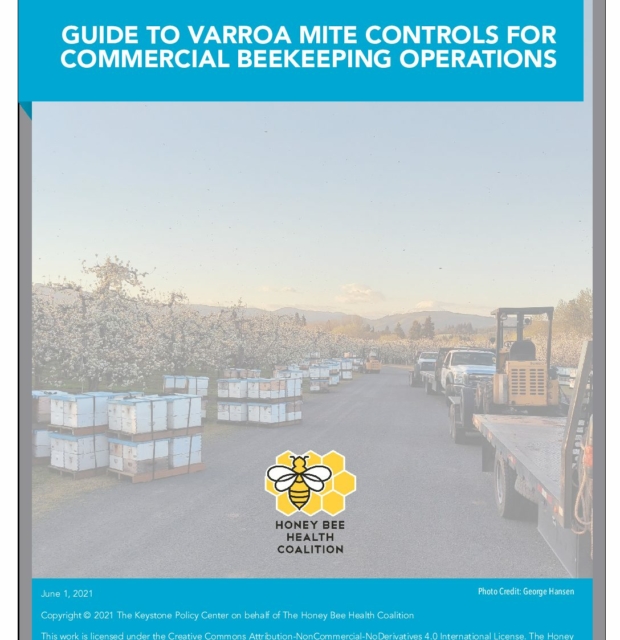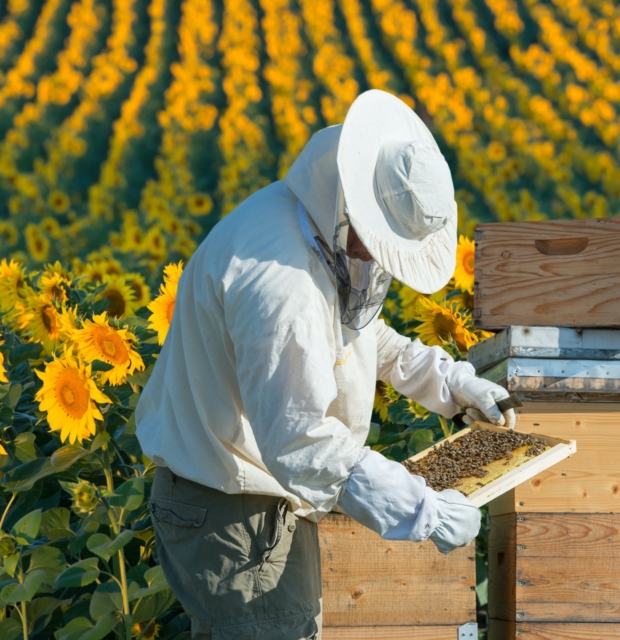News
Engaging USDA, EPA Leaders on Honey Bee Health
The Honey Bee Health Coalition recent wrote to U.S. Secretary of Agriculture Sonny Perdue and U.S. Environmental Protection Agency Administrator Scott Pruitt concerning honey bee health and potential areas for action at the federal level.
Read the letter by clicking here or scrolling below.
Secretary Perdue and Administrator Pruitt,
The Honey Bee Health Coalition is a diverse public-private partnership that brings together beekeepers, crop producers (including pollinated specialty crops like almonds, fruits, and vegetables and row crops like corn, soy, canola, and wheat), agribusinesses (including seed and chemical companies), conservation groups, manufacturers and brands, researchers, government agencies, and other key partners to improve the health of honey bees and other pollinators in the context of productive agricultural systems and thriving ecosystems. With 45 member organizations, we work together on voluntary strategies that make sense for beekeepers, farmers, conservationists, and the agricultural supply chain. Our focus is on collaboration across affected communities to achieve desired goals of improved honey bee health, rather than advocacy from any one constituency point of interest.
Honey bees and other pollinators are a vital part of U.S. agriculture — supporting production of most of the fruits, nuts, and vegetables grown in the U.S., with an approximate $19 billion in agricultural production annually. Honey bee health is a critical, bipartisan issue that touches beekeepers, farmers, consumers, workers, businesses, and rural and urban communities from coast to coast and from the Great Lakes to the Gulf of Mexico. That is why the Honey Bee Health Coalition urges you to prioritize the health of honey bees and other pollinators and to partner with us to implement practical, collaborative strategies to support honey bee health.
The Coalition and its members have been leading voices for honey bee health, approaching the topic as multifactorial, with the opportunity for everyone to contribute solutions. Our members may not agree on every issue or every potential path for action, but the Coalition has enjoyed tremendous success focusing on collaborative strategies to address the main drivers of recent bee losses: poor nutrition; incidental pesticide exposure; and exposure to bee parasites and diseases.
As a Coalition of diverse public and private sector interests, we have been working hard alongside federal partners to contribute to and implement the National Strategy to Promote the Health of Honey Bees and other Pollinators developed under the prior presidential administration. As you look ahead to your agenda in 2017 and beyond, we hope that pollinator health remains a top priority of this administration. We respectfully request the opportunity to meet and discuss this issue with you and to forge new and continued opportunities to address this critical issue for U.S. agriculture.
We also offer the following specific, consensus recommendations for federal action:
1. Promote coordinated, collaborative, multi-factor solutions to honey bee health: Should the current administration move forward with actions to improve bee health, we suggest focused efforts on communication across traditional boundaries that promote collaborations toward discovery of solutions in prioritizing bee health and meeting the goal to reduce honey bee colony losses during winter (overwintering mortality) to the historic norms of approximately 15%.
2. Improve hive health monitoring and treatment through technology and outreach
- Support the Bee Informed Partnership’s Technology Transfer Teams and other state and federal extension programs to provide essential extension, education, and colony monitoring for beekeepers at all scales.
- Support research on bee parasites, insects, and disease pests.
- Work in partnership with federal agencies, beekeeping organizations, pest control industries, and researchers to prioritize and accelerate the identification and registration of new products to effectively control varroa mites.
3. Improve honey bee nutrition through high quality, cost-effective conservation programs that improve access to healthy and abundant forage and research into bee nutrition, including development of supplemental feeds
- Implement strategies to restore or enhance 7 million acres of land for healthy forage lands to support pollinators over the next 5 years through Federal actions and public/private partnerships.
- Implement the Honey Bee Health Coalition’s 2015 and 2016 recommendations to improve the nutritional value and cost effectiveness of pollinator forage plantings in the USDA’s conservation programs. Recommendations include updating seed specifications and technical guidelines.
- Support public-private projects, like the Bee and Butterfly Habitat Fund, that provide co-benefits for pollinators, soil health, water quality, wildlife, and crop yields.
- Support research and development for high quality, cost-effective nutritional supplements to support commercial honey bees.
4. Improve crop pest management practices to protect crops while safeguarding bee health
- Convene and participate in a Honey Bee Crop Protection Research and Pollinator Health summit on crop pesticides, to describe the current state of the science and explore ways in which farmers and beekeepers can work together to reduce bee exposures to pesticides, while providing farmers with the crop protection tools needed to provide for the nation’s food security. This would be similar to and consistent with events on the varroa mite and forage and nutrition previously convened by USDA and EPA.
- Utilize comprehensive, risk-based assessments in understanding factors that may impact honey bee health, including factors that may impact acute losses and/or chronic effects resulting in colony losses.
- Support development, adoption, and longitudinal evaluation of crop-specific best management practices (BMPs).
- Support State- and Tribe-based Managed Pollinator Protection Plans and other programs for bringing together beekeepers, agricultural producers, pesticide applicators, crop advisors, University extension, and other stakeholders to learn about and implement best management practices that are appropriate for the given crops and regions.
- Improve mechanisms for reporting and investigating bee mortality incidents, reduce barriers to reporting, and increase the utility of reported data in preventing future incidents.
We welcome the opportunity to work with our federal partners to implement strategies, highlight honey bee health success stories, and share and apply lessons learned. We would like to schedule some time for members of the Coalition to meet with you in the near future.
Sincerely,
The Honey Bee Health Coalition Steering Committee

